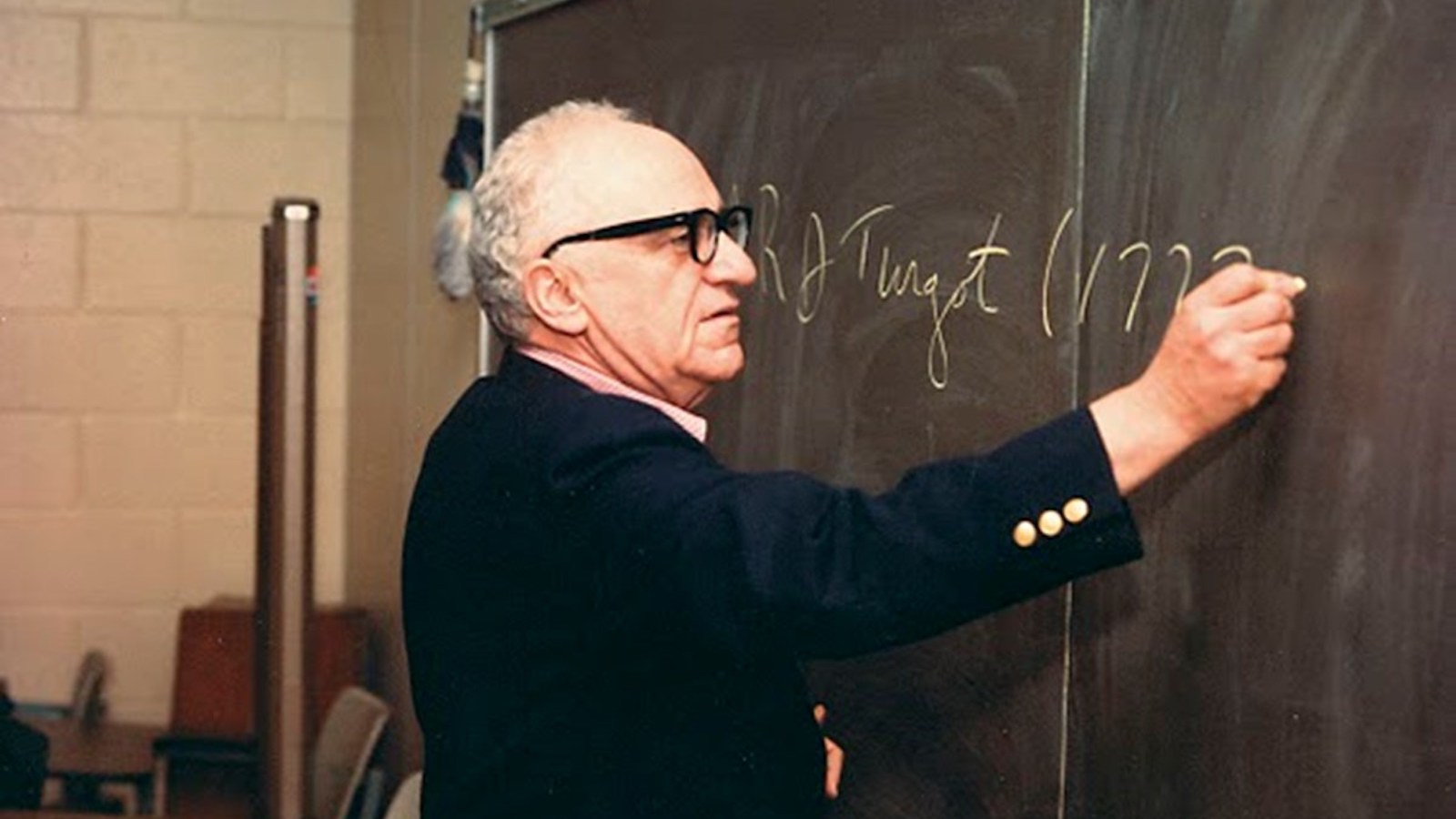
What is Austrian Economics?
I’ve gotten some questions about Austrian economics, which is the model I use to understand the world. Since Austrian isn’t very well known, I thought I’d sketch how it differs from mainstream economics.
In short, Austrian economics means economics without government bribes. And it turns out once you take government bribes out, economics gives a very different model of the economy, one that puts liberty front and center.
The Capture of Mainstream Economics
Economics as a field has been around a long time—at least since the 16th century when the “classical” model was worked out by the Spanish Scholastics.
But starting in the 1800s the field of economics was co-opted by governments—starting with Prussia. They saw economics as a useful propagandist who could help take over the economy and turn out fantastic profits to bankers, industrialists, and anybody else with a nice lobbying budget.
Economists became what Murray Rothbard called the “intellectual bodyguard” of the regime. Or, as James Buchanan put it, economists become “camp following whores.”
This takeover culminated in the “Keynesian revolution” in the 1930s. After which mainstream economics—universities and all—became effectively a wing of government.
Austrian economics simply returns to that pre-Keynesian classical understanding of how an economy works.
What is Austrian Economics?
Austrian economics gets its name because in the late 1800s the German-speaking world dominated the field of economics, as it did much of science. But economics operated very differently in the two halves of the German speaking world, Prussia and Austria.
While Prussian economists were funded by the government, it was a different story for the poor Austrians, who were not on the government payroll. So they spent their days doing what economists had done for centuries: try to understand how economies work. Why people buy, sell, trade, interact, work, produce, or destroy.
This meant following the centuries-long evolution of classical economics. As such, I’d join economist Pete Boettke in considering the Austrians to be the “true” economics, what he calls “mainline” economics. As opposed to the camp-following whores in “mainstream” economics.
Praxeology
So with that background, what makes Austrian different? The classical or Austrian approach is to use logic to understand human behavior. In Austrian this is called praxeology—the study of human action.
Concretely, praxeology uses 3 key axioms—an axiom is an obviously true thing—from which you can logically deduce all of economics:
- Action has purpose: This means people are not billiard balls; they do things for a reason. Namely, because they believe it will improve their life, giving a personal profit.
- Humans differ: This means people have different skills and want different things. This means it’s profitable for people to trade and interact.
- Leisure is a good: This means people will only engage in work if it’s profitable. So, for example, there’s no such thing as an “oppressed” worker unless violence was used.
Amazingly, these 3 axioms can literally explain the entirety of economics—you don’t need dozens of books written in calculus.
Further, the axioms imply that the way to maximize people’s happiness is liberty: for the government to do absolutely nothing beyond protecting them.
After all, if action is based on what the actor thinks will most improve his life, there is no role for government beyond protecting his ability to choose freely. Meanwhile, if human differences motivate exchange and interaction, again, there’s no role for government but to stay out of the way.
Compared to mainstream, which ignores theory in favor of data—”let the data speak” is the mantra. This turns economics into nothing more than statistics: an endless stream of correlations. In theory, letting the data speak looks neutral and scientific. Akin to the use of data in physics.
But that takes us back to the government bribes. After all, who’s collecting the data, and who’s running the statistical analyses? Governments make up nearly the entire revenue of universities between grants, appropriations, and subsidized student loans. Indeed, they make up the overwhelming revenue of even non-university analysts at non-profits that essentially operate as wings of the government.
This means the data isn’t speaking. Because the data is bought.
The end result is that, in mainstream economics, every government intervention, every central planner, is just a question of data. You run the simulation, see if the results are positive—does the intervention improve the world? Inevitably every government intervention does improve the world, on paper at least, given who’s paying the analyst.
The end result is every government program works perfectly in theory. And every government intervention fails miserably in practice. Because from welfare programs to industrial policy to bureaucratic regulation to the Federal Reserve itself, the data said what it was paid to say.
But note the important implication for government policy. If everybody is profiting from every transaction (action axiom, leisure axiom), and if every individual is best at finding the best transactions (subjective preferences, difference axiom), it means there is absolutely no role for government beyond protecting our ability to choose. Government is, at best, in the way: We are paying government to destroy us.

Ideological Implications of Austrian
The key insight of the Austrian school that government intervention is harmful can be applied to pretty much every question in economics. In fact, economist Murray Rothbard did just that in his 1995 book Making Economic Sense that walks through 117 common fallacies that, 30 years later, still reads like it was written last week.
In terms of ideology, in contrast to Keynesian economics, where government is always right—or even Chicago economics, where big business is always right—Austrian economics tends to imply a libertarian worldview. One where the government gets out of the way altogether. Playing at most a helpful role so individuals can seek their own happiness.
It’s not that libertarianism is required for Austrian economics. It’s that once you accept that individuals know what’s best for them, it implies that no central planner can run your life better than you. No matter how many PhD’s they have.
It implies the best way to help people, the best way to build a society, is liberty.
So just as studying physics makes you believe in gravity, studying Austrian economics makes you believe in liberty.
Resources
Finally, some good resources. My favorite to start the ball rolling is Rothbard.
The book I mentioned earlier, Making Economic Sense, is a great start. Or if you’re interested in the demon-spawn known as the Federal Reserve start with What Has Government Done to Our Money?.
And if you’d like to go deeper on theory and history, check out Rothbard’s Man, Economy, and State or his magisterial History of Economic Thought.
Rothbard is generally gold-centric—Bitcoin didn’t exist yet. But if you’re interested in Bitcoin, the best Austrian economist in Bitcoin is Saifedean Ammous.
Check out his books Bitcoin Standard, Fiat Standard, and Principles of Economics.
Conclusion
I’ll end with a quote by John Stuart Mill: “The real advantage which truth has is that it may be extinguished once, twice or many times, but in the course of ages there will generally be found persons to rediscover it, until its reappearances falls on a time when from favourable circumstances it escapes persecution until it has made such head as to withstand all subsequent attempts to suppress it.”
Austrian economics, like liberty itself, will always be at a disadvantage because governments dislike it. Yet the people always want liberty—sometimes very passionately. And the people always want the prosperity delivered so they and their children can pursue their dreams and spread justice in the world.
Protecting liberty is a never-ending battle, but to me it is the most sublime battle one could join.
This article was originally published on Money Metals Exchange.
Free the People publishes opinion-based articles from contributing writers. The opinions and ideas expressed do not always reflect the opinions and ideas that Free the People endorses. We believe in free speech, and in providing a platform for open dialogue. Feel free to leave a comment.




Joshua D Glawson
Fantastic article on Austrian Economics and Liberty by Dr. Peter St. Onge!